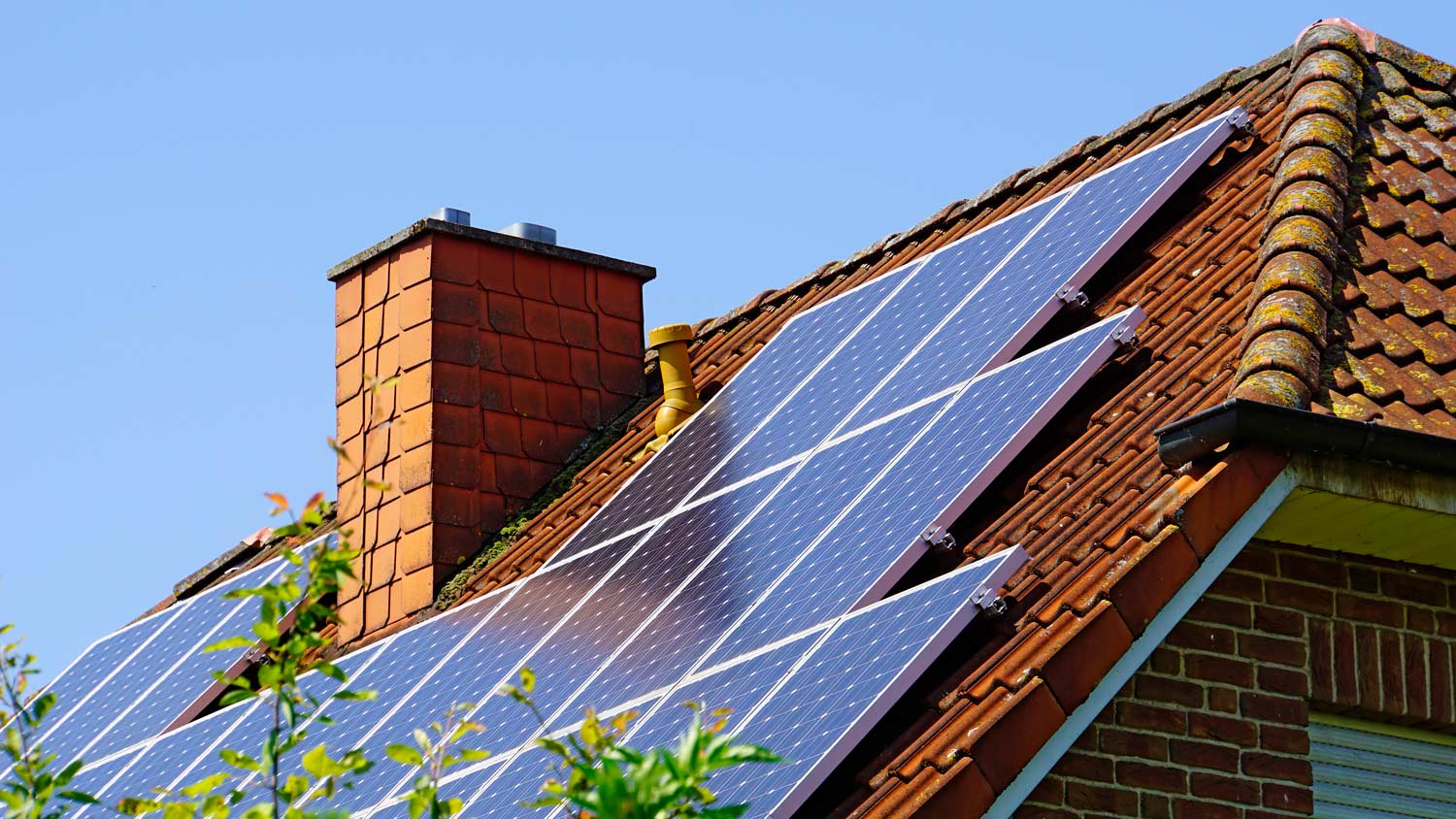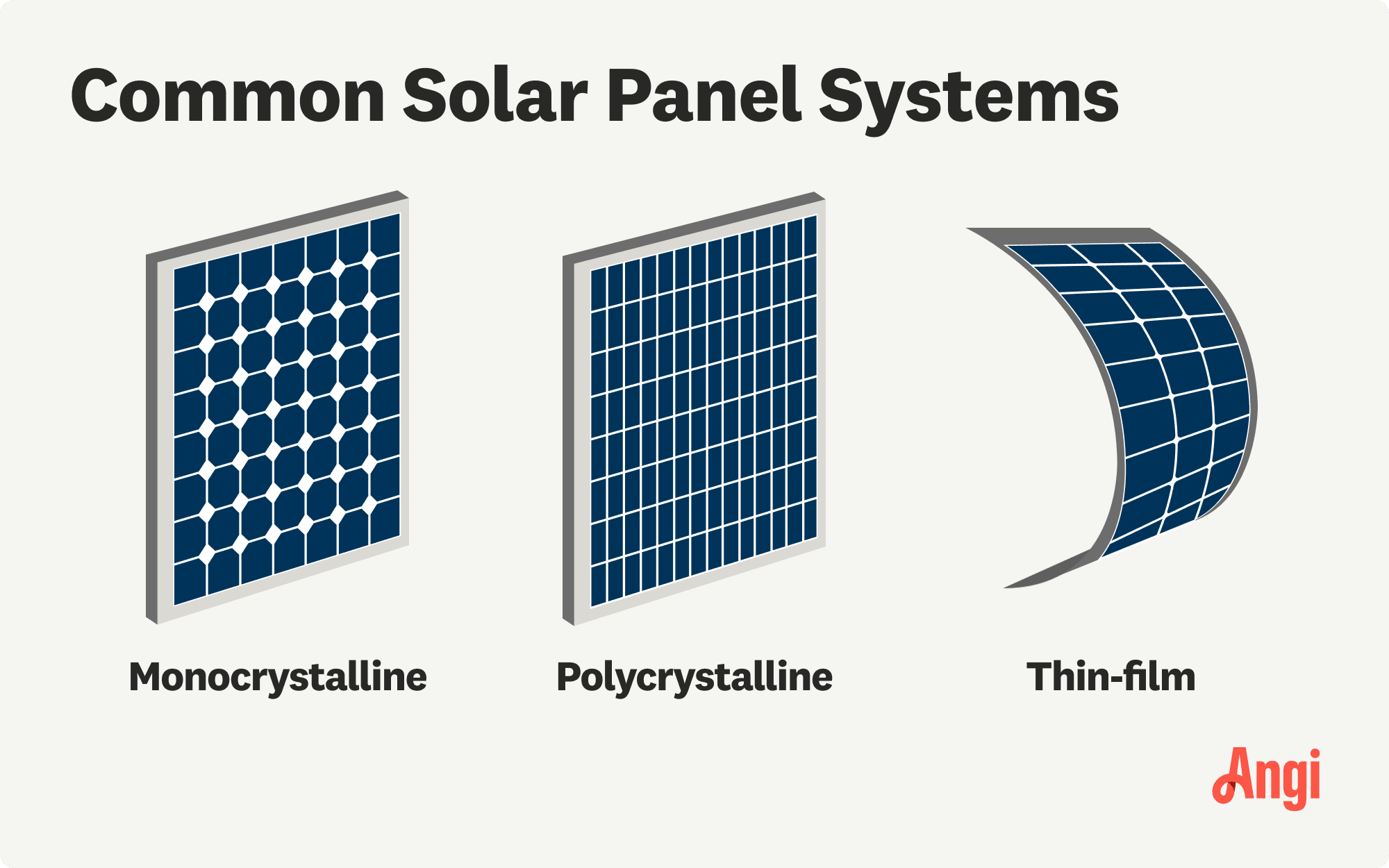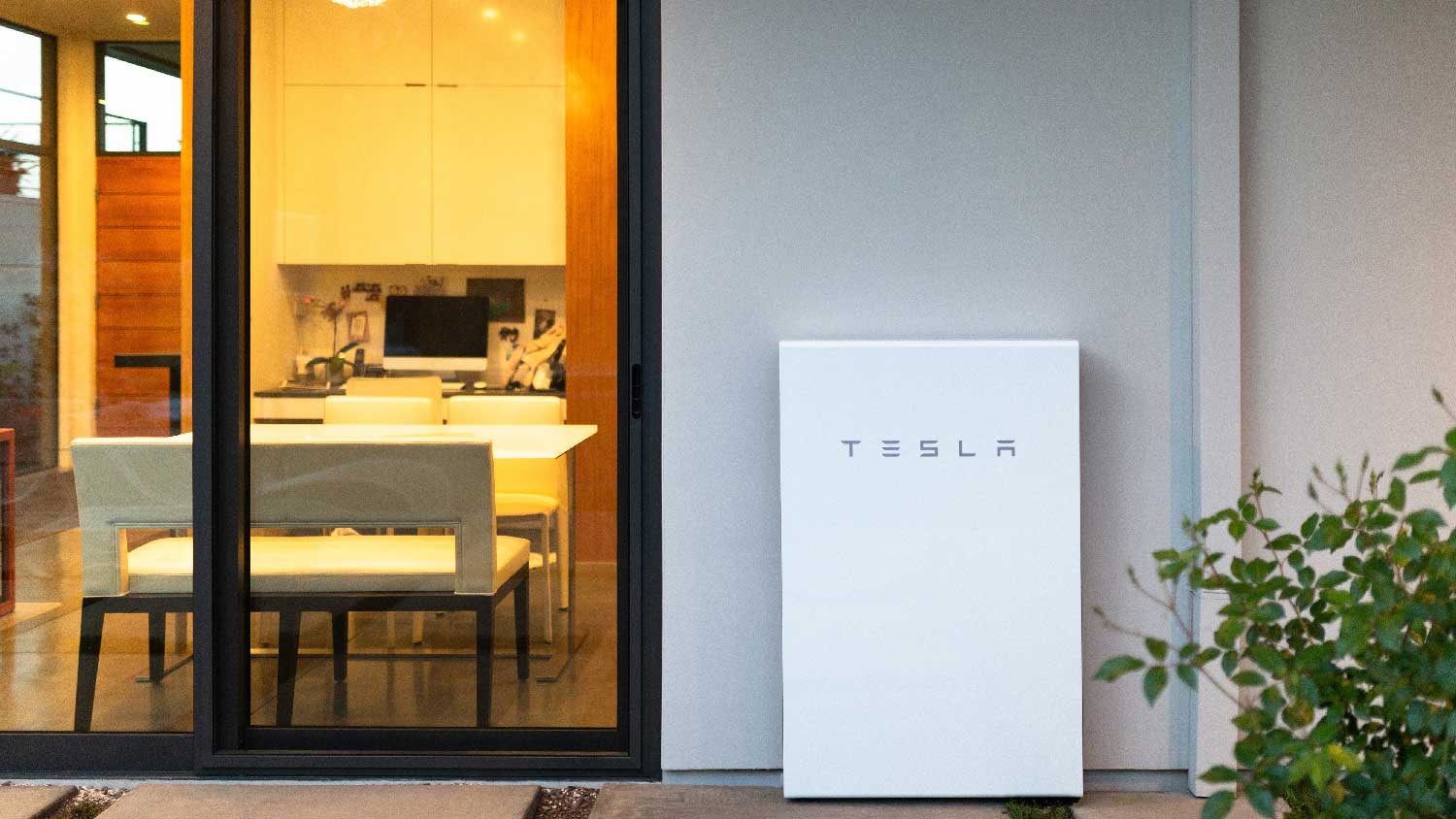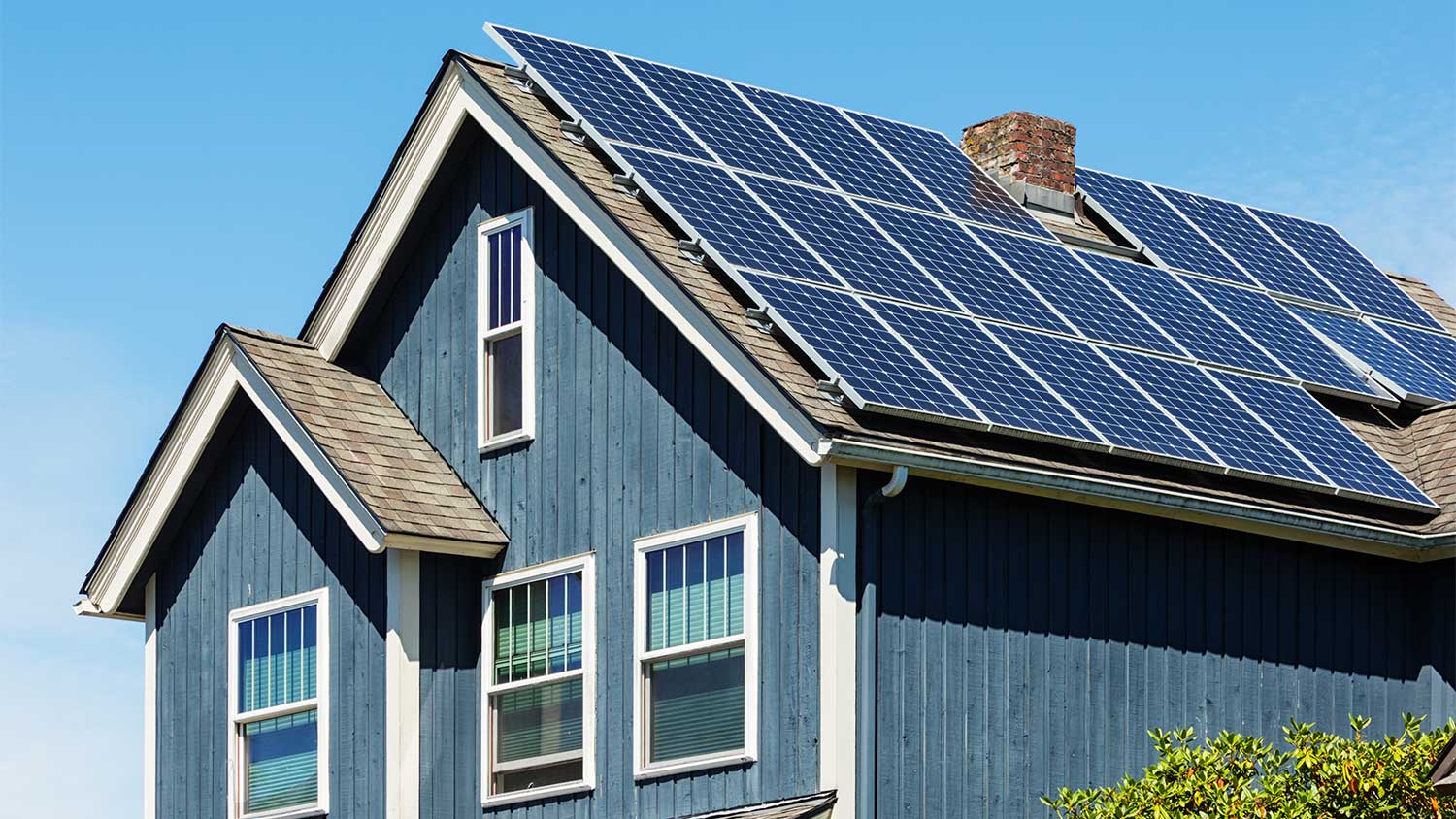
Get a detailed estimate of solar farm costs. Learn about average prices, key cost factors, and ways to save when planning your solar farm project.
Installing solar panels in Orlando, Florida, averages $25,541, though it ranges between $19,524 and $32,146 based on system size, panel type, wattage, and more. A solar panel installer can assess your roof and install your system.


Orlando's year-round sunshine makes it a natural fit for solar energy and one of the top solar markets in the country.
Florida's net metering program allows Orlando homeowners to sell excess power back at retail rates.
High air conditioning costs during Orlando's long summers mean homeowners with solar panels can save significantly on utility bills.
Orlando is increasingly focused on renewable energy and supports residential solar with tax breaks and utility connection programs.
Orlando’s hot climate is rough on electric bills, but most roofs there get fantastic sun exposure with minimal shading, making solar a bright idea. Solar panel installation costs in Orlando average $25,541 and range between $19,524 and $32,146. Between the area’s blazing sunshine, sky-high summer cooling bills, and solar-friendly rules, there's never been a better time to explore solar. Let's walk through the numbers and factors that shape your total cost.
Perhaps you have a sprawling ranch with a large south-facing roof, a beach bungalow that gets plenty of rays, or a condo that has nearby neighbors. Whatever your home looks like, plenty of variables will shape your costs. A solar panel installer in Orlando, Florida, can give you precise bids for your home’s needs.
The size of the solar system will impact your solar panel installation costs. The larger the output, the more you’ll pay. Most homes need 6- to 10-kW (kilowatt) systems, which work out to anywhere from 15 to 34 panels, depending on the wattage.
The table below shows average costs based on the size of your solar system:
| System Size (kW) | Number of Panels | Average Cost |
|---|---|---|
| 4 | 10–12 | $8,320–$9,600 |
| 6 | 15–18 | $12,480–$14,400 |
| 8 | 20–24 | $16,640–$19,200 |
| 10 | 25–30 | $20,800–$24,000 |

When choosing the type of solar panel that works best for your home, consider three main factors: efficiency, life expectancy, and design. Here’s how the type of solar panel can affect your cost:
| Type of Solar Panel | Average Cost per Watt | Efficiency Rate (%) | Pros | Cons |
|---|---|---|---|---|
| Monocrystalline | $0.95–$1.25 | 18–22 | Efficient operation, takes up less space | Higher cost |
| Polycrystalline | $0.70–$0.95 | 15–17 | Budget-friendly, decent performance | Less efficient, needs more roof space |
| Thin film | $0.50–$0.80 | 10–12 | Can generate power in shade, flexible installation | Needs the most space |
On average, most homes need anywhere from 20 to 25 panels to fully power a home, but this can range from as few as 15 to as many as 34. How many panels you need depends on the number of watts per panel, your energy consumption, and the efficiency of your panels. Your average solar panel will have an output of anywhere from 250 to 400 watts. The dimensions of your solar panels will also depend on the power output.
Local solar installers have the expertise to research past electric bills, take measurements of your roof, calculate where to place panels for maximum power, and recommend how many solar panels you need.
From blazing UV rays to the occasional hurricane, your solar setup needs equipment built to Orlando standards. However, the more advanced the technology, the higher the up-front cost. The type of mount will affect the cost as well:
Fixed mounts: $16–$28 per mount
Standard roof mounts: $130–$260 per panel
Ground mounts: $450–$900 per panel
Adjustable mounts: $65–$90 per mount
Tracking: $700–$3,500 or more per mount (these mounts can self-track sunlight, leading to up to 45% more energy production)
Ballasted systems: $175–$350 per panel (for flat roofs)
Other materials you will need for a solar energy system include the parts in the table below.
| Hardware | Average Cost |
|---|---|
| String inverter | $1,050–$3,075 each |
| Microinverters | $175–$350 each |
| Power optimizer | $90–$175 each |
| Solar battery | $7,000–$17,500 |
| Monitoring system | $260–$700 |
Inverter: Converts direct current (DC) electricity to alternating current (AC) electricity
Microinverters: Converts DC power to AC power at individual panels instead of the whole string of panels
Optimizer: Regulates currents so each panel is more energy efficient and prevents power loss.
Battery: Stores excess energy from the system so homeowners can use it at night or during a power outage
Some systems use a single solar inverter or several microinverters that convert DC to AC electricity. Materials like the wiring and battery are often grouped with the package price unless you opt for add-on services.
Installing solar panels isn't a DIY project, especially in Orlando, Florida. Between hurricane building codes, electrical safety requirements, and the dangers of working on roofs, this job calls for pros. Experienced installers handle permit paperwork and make sure your system meets strict safety standards while helping you get available rebates and credits.
Budget $0.42 to $0.58 per watt for labor, not including permits or additional technology, such as special mounts, tiles, or shingles.
Solar panel installation does require electrical work. Though many solar panel installation companies have a licensed electrician on staff who specializes in solar panels, roofing contractors sometimes subcontract an electrician. The cost of hiring an electrician in Orlando costs about $50 to $130 per hour, with most installations taking four to eight hours of electrical work.
Depending on your area, you may need to get a building permit and a solar panel inspection before you can unveil your new solar panels. Permits and inspections will add an average of $200 to $800 to the solar panel costs.
Standard residential permits: $125–$350
Orlando city solar permits: $170–$425
Electrical permits: $75–$200
Connecting to the utility grid: $50–$175
Most installers include permits in their total price, and you can expect the permitting process to take one to three weeks.
If you’re looking to add value to your home, adding solar panels and other energy-efficient upgrades can be worthwhile investments. Properties with solar sometimes have more showings, sell for more, and spend less time on the market.
It’s easy to see why solar panels have a return on investment of 35%. You’ll cut down on monthly electric bills and net metering pays retail rates for the extra power your panels generate. Plus, if your system has a battery backup, you’ll have power during outages, like those during hurricane season. These are big upsides for homeowners and homebuyers, adding value now and later.
Once your solar panels are paid off, they're officially your property. If you move, you can reinstall them on a new rooftop. Alternatively, they can increase the value of your home by 3% to 4% and attract more buyers. They can also give your property a competitive edge in a buyers’ market.
The best way to save money on the up-front costs of installing solar panels is to take advantage of the Solar Investment Tax Credit (ITC) before it ends on December 31, 2025. The ITC allows homeowners to claim a federal tax credit equal to 30% of the price of their solar panel system installation.
For example, if your solar panel system costs $30,000 before the federal tax credit, you can save around $9,000. However, to benefit from this credit, your solar system has to be installed and working before the federal incentive ends.
The ITC, also known as the Residential Clean Energy Credit, was originally extended through 2032 as part of the Inflation Reduction Act. However, new federal legislation (the Big Beautiful Bill Act) signed into law on July 4, 2025, terminated the credit early. The Solar Energy Industries Association® (SEIA) outlines the high-level policy changes and restrictions on energy tax credits.
Additionally, the extra power you choose not to store in a battery can be sent back to the grid. Your local utility company will compensate you for that power, but the amount will vary. You can check the Utility Rate Database on Open EI to estimate how much you can expect to receive for generating excess energy.
Homeowners in Orlando, Florida, can look into good deals through state and local programs. The Orlando Utilities Commission provides a net metering program so you can sell extra solar power back at the same rate you pay for electricity. Orlando’s main utilities offer solar programs that put money back in your pocket, too, but you’ll need to call your local companies for details.
Your property taxes won’t go up when you add solar panels, even though they increase your home's value. And Florida doesn't charge sales tax on solar equipment, saving on up-front costs.
Home is the most important place on earth, which is why Angi has helped more than 150 million homeowners transform their houses into homes they adore. To help homeowners with their next project, Angi provides readers with the most accurate cost data and upholds strict editorial standards. We survey real Angi customers about their project costs to develop the pricing data you see, so you can make the best decisions for you and your home. We pair this data with research from reputable sources, including the U.S. Bureau of Labor Statistics, academic journals, market studies, and interviews with industry experts—all to ensure our prices reflect real-world projects.
Want to help us improve our cost data? Send us a recent project quote to [email protected]. Quotes and personal information will not be shared publicly.
From average costs to expert advice, get all the answers you need to get your job done.

Get a detailed estimate of solar farm costs. Learn about average prices, key cost factors, and ways to save when planning your solar farm project.

There are a few factors to consider when it comes to solar panel repair costs. This guide breaks down the prices of solar panel removal, repair, and replacement.

Discover the Tesla Powerwall installation cost, including average prices, cost factors, and tips to help homeowners budget and save on their Powerwall project.

Adding solar panels to your home increases its value. Learn about lifetime value appreciation and energy savings solar panels bring to the average home.

Is your home a good fit for solar panels? It all depends on your roof, sunlight exposure, and energy bills. Use this guide to find out.

Are solar panels worth it? It depends on several factors—from the sunlight in your yard to local energy costs. This guide will help you decide.